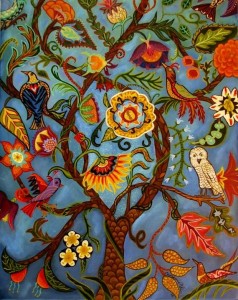Dear Integral Meditators,
One of the challenging things about meditation and a mind of meditation is that you have to have experience of it in order to ‘get it’. Thus for those who have not experienced it, it can seem very abstract. This is where using images comes in handy, as the image itself can act as a doorway to the experience. This weeks article uses the image of water as a way of approaching the mind of meditation.
Last chance to catch the special offer for 1:1 coaching for January at Integral Meditation Asia over the next couple of days, the offer end on 1st Feb!
Yours in the spirit of a mind like water,
Toby
Upcoming Courses at Integral Meditation Asia :
Sunday 1st February – Mindful Self-Leadership: Take Control of Your Life Direction and Wellbeing Through Awareness, Curiosity, Courage and Care
Tuesday 10th February, 7.30-9.30pm – An Evening of Mindful Resilience – Sustaining effectiveness, happiness and clarity under pressure through meditation and mindfulness
Saturday 14th February, 2.30-5.30pm – Mindfulness and Meditation For Creating a Mind of Ease, Relaxed Concentration and Positive Intention
 A Mind Like Water
A Mind Like Water
If you hit water
Let’s say you have a lake, pond or swimming pool. If you hit, slap or punch the surface it will temporarily disturb the water, but as soon as you stop hitting the water, it quickly relaxes back into its original still form. A public swimming pool can be fully of people and disturbed all day, but as soon as the last person gets out, it goes right back to its calm, still form.
This is one of the qualities that we try to bring to our mind as meditators; we enter the world of action each day, get slapped around by the world, but the quality of our mind is such that as soon the action ceases, our mind relaxes back into a still open state. You might think that this is not easy, but if you think about the image of water, it will help you get a feel for it; it is a fluid, relaxed flowing quality that we bring into our awareness and the way in which we consciously respond to the push and shove of life. Note that water never resists, it simply absorbs and then immediately dissipates the force.
Our solid, chunky minds
At the moment whenever our mind takes an emotional or mental ‘hit’ we hold onto the force of that hit; we resist it, deny it, rage with it. It is like our mind is solid and calcified, perhaps like a piece of wet clay. If you punch a piece of wet clay, it will hold the shape of your fist, it will stay there. For many of us this is our response to taking a psychological hit in our life, we hold it in our mind like an imprint in wet clay; its impression continues to affect us long after the event that actually caused it.
Recovering from mental and emotional ‘hits’
So, if you want to develop the capacity to recover from the mental and emotional hits, then one perspective you can try out is to practice receiving these hits like water; no resistance, simply absorbing, dissipating the force and then returning naturally a state of inner calm
This does not mean that you don’t hold your shape sometimes
Making our mind like water does not contradict our capacity to build a strong mind, express our will, be mindful of goals and other qualities that require our mind to hold its ‘shape’. Rather it is a complementary capacity that enables us to keep our mind and energy young and flexible, calm and relaxed. It is a quality that is a bit like a soft form of martial art you absorb the energy of your opponent and then redirect it toward him. It might also be described as a form of effortless effort.
The next time you take a mental or emotional hit remember; make your mind like water!
Related article: Non-striving
Online Courses * 1:1 Coaching * Life-Coaching * Live Workshops * Corporate Mindfulness Training * Meditation Technology










